Related Research Articles

Maharashtra is a state in the western peninsular region of India occupying a substantial portion of the Deccan Plateau. It is bordered by the Arabian Sea to the west, the Indian states of Karnataka and Goa to the south, Telangana to the southeast and Chhattisgarh to the east, Gujarat and Madhya Pradesh to the north, and the Indian union territory of Dadra and Nagar Haveli and Daman and Diu to the northwest. Maharashtra is the second-most populous state in India and the fourth-most populous country subdivision globally.
Education in Australia encompasses the sectors of early childhood education (preschool) and primary education, followed by secondary education, and finally tertiary education, which includes higher education and vocational education. Regulation and funding of education is primarily the responsibility of the States and territories; however, the Australian Government also plays a funding role.
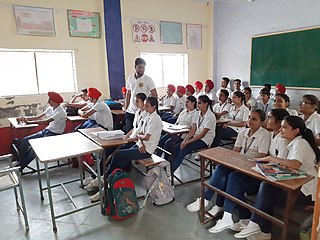
Education in India is primarily managed by the state-run public education system, which falls under the command of the government at three levels: central, state and local. Under various articles of the Indian Constitution and the Right of Children to Free and Compulsory Education Act, 2009, free and compulsory education is provided as a fundamental right to children aged 6 to 14. The approximate ratio of the total number of public schools to private schools in India is 10:3.
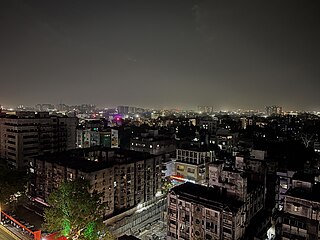
Nagpur is the third-largest city of the Indian state of Maharashtra after Mumbai and Pune. Known as the "Orange City", Nagpur is the 13th largest city in India by population. According to an Oxford's Economics report, Nagpur is projected to be the fifth fastest growing city in the world from 2019 to 2035 with an average growth of 8.41%. It has been proposed as one of the Smart Cities in Maharashtra and is one of the top ten cities in India in Smart City Project execution.

Mehsana, also spelled Mahesana, is a city and Municipal corporation in Mehsana district, in the Indian state of Gujarat. Established in 14th century, the city was under Gaekwads of Baroda State from 18th century to the independence of India in 1947. The municipality was established in 1919–20 and the plan to form Municipal Corporation was announced in 2024. The town has population of about 185,000. Dairy, oil and natural gas are major industries while there are several small and medium enterprises in the city.
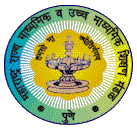
The Maharashtra State Board of Secondary and Higher Secondary Education is a statutory and autonomous body established under the "Maharashtra Secondary Boards Act" 1965. Most important task of the board, among few others, is to conduct the SSC for 10th class and HSC for 12th class examinations. It is the most popular education board in terms of enrollment in high school in India only after the Central Board of Secondary Education.

Education in Bangladesh is administered by the country's Ministry of Education. The Ministry of Primary and Mass Education implements policies for primary education and state-funded schools at a local level. Education in Bangladesh is compulsory for all citizens until the end of grade eight. Primary and secondary education is funded by the state and free of charge in public schools.

Father Conceicao Rodrigues Institute of Technology (FCRIT) is a private engineering college affiliated to the University of Mumbai located in Vashi, Navi Mumbai. The institute offers the B.E degree courses in Computer Engineering, Electrical Engineering, Mechanical Engineering, Electronics and Telecommunication Engineering and Information Technology.
The Higher Secondary Certificate (HSC) or Higher Secondary School Certificate (HSSC) or Higher Secondary Education Certificate (HSE) is a secondary education qualification in Bangladesh, India and Pakistan. It is equivalent to the final year of high school in the United States and GCSE and/or A level in the United Kingdom.

The economy of the state of Maharashtra is the largest in India. Mumbai, the capital of Maharashtra and often described as the New York of India or Manhattan of India, is the financial capital and the most populous city of India with an estimated city proper population of 12.5 million (1.25 crore). The city is the entertainment, fashion, and commercial centre of India. Mumbai hosts the largest urban economy of any city in India. is considered the financial capital of India with the headquarters of almost all major banks, financial institutions, insurance companies and mutual funds being based in the city. India's largest stock exchange Bombay Stock Exchange, the oldest in Asia, is also located in the city. More than 41% of the S&P CNX 500 conglomerates have corporate offices in Maharashtra.
As per the 2011 census of India, Andhra Pradesh has an overall literacy rate of 67.35%, significantly lower than the overall national average of 74.04%. Among the Indian states and union territories, it stands at 32nd position. There were a total of 29,859,982 literates: 16,549,514 males and 13,310,468 females. In terms of district-wise literates, united East Godavari has the most with 3,348,077 and united Vizianagaram has the least with 1,238,388. The government also implements fee reimbursement scheme for the economically backward sections of the state.
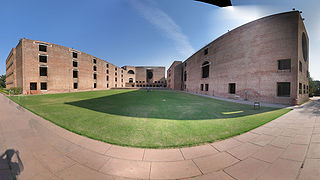
Gujarat is a state situated in the western part of India and shares its northwestern boundary with Pakistan. Rajasthan, Madhya Pradesh and Maharashtra are the neighboring states of Gujarat. Gandhinagar is the capital city of the state and Ahmedabad is its largest city and the main commercial hub of the region. Gujarat houses a wide variety of industries and is considered one among the best industrialized states of the nation. Gujarat is also home to some of the prestigious educational institutes of the nation.
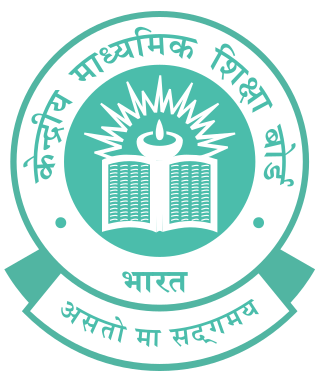
The Central Board of Secondary Education (CBSE) is a national level board of education in India for public and private schools, controlled and managed by the Government of India. Established in 1929 by a resolution of the government, the Board was an experiment towards inter-state integration and cooperation in the sphere of secondary education. There are more than 27,000 schools in India and 240 schools in 28 foreign countries affiliated to the CBSE. All schools affiliated to CBSE follow the NCERT curriculum especially from class 9 to 12. The current Chairperson of CBSE is Nidhi Chhibber, IAS.
Modern education was introduced to Maharashtra region during the 19th century by British colonial administration. Census of 2011 showed literacy rates in the state for males and females were around 78% and 67% respectively. Education at different levels in the state is provided by the state, government supported charities, or private institutions. There are also a number of institutes offering vocational training.

Vinod Sridhar Tawde is an Indian politician from Maharashtra and a senior leader of the Bharatiya Janata Party (BJP). He was the General Secretary for Maharashtra unit of the party, President for Mumbai, All India National Executive Council Member and a key member of co-ordination Committee of the BJP for the 12th and 13th Lok Sabha Election
The National Institute of Open Schooling (NIOS), formerly National Open School is a national level board of education in India, controlled and managed by the Government of India. It was established by the Ministry of Education of the Government of India in 1989.

Rajkumar Badole is an Indian politician. He is a Bharatiya Janata Party member and had represented Arjuni Morgaon in 13th Maharashtra Legislative Assembly in Devendra Fadnavis ministry.
Chitra Jayant Naik (1918–2010) was an Indian educationist, writer, social worker, the chairperson of the Indian Institute of Education and the expert member of the Planning Commission of India. She was the chairperson of the Non-formal Education Committee set up by the Ministry of Human Resource Development and was a member of the National Literacy Mission. The Government of India awarded her the fourth highest Indian civilian honour of Padma Shri in 1986.

Khelo India Youth Games (KIYG), are the annual national level multidisciplinary grassroot games in India held in January or February for two categories, namely under-17 years school students and under-21 college students. Every year best 1,000 kids will be given an annual scholarship of ₹5 lakh (US$6,300) for 8 years to prepare them for the international sporting events.

The Ministry of School Education is a ministry of the Government of Maharashtra. It is responsible for designing and implementing education related policies in the state Maharashtra.
References
- ↑ "MIEB" (PDF). Maharashtra International Education Board. Retrieved 9 March 2019.
- ↑ "Maharashtra CM launches school named after Vajpayee". Hindu Business Line . 25 December 2018. Retrieved 9 March 2019.
- ↑ "Maharashtra: 13 district schools get affiliated to new international education board". The Indian Express . 11 January 2019. Retrieved 9 March 2019.
- ↑ "Maharashtra international board opens doors to self-financed schools". The Times of India . 26 December 2018. Retrieved 9 March 2019.
- ↑ "Private schools to join Maharashtra international board". Hindustan Times . 26 December 2018. Retrieved 9 March 2019.
- ↑ "Maharashtra government to form International board for Non-English schools". India Today . 7 May 2018. Retrieved 9 March 2019.
- ↑ "MIEB to be merged with State Board" . Retrieved March 9, 2024.
- ↑ "Govt scraps MIEB" . Retrieved March 9, 2024.